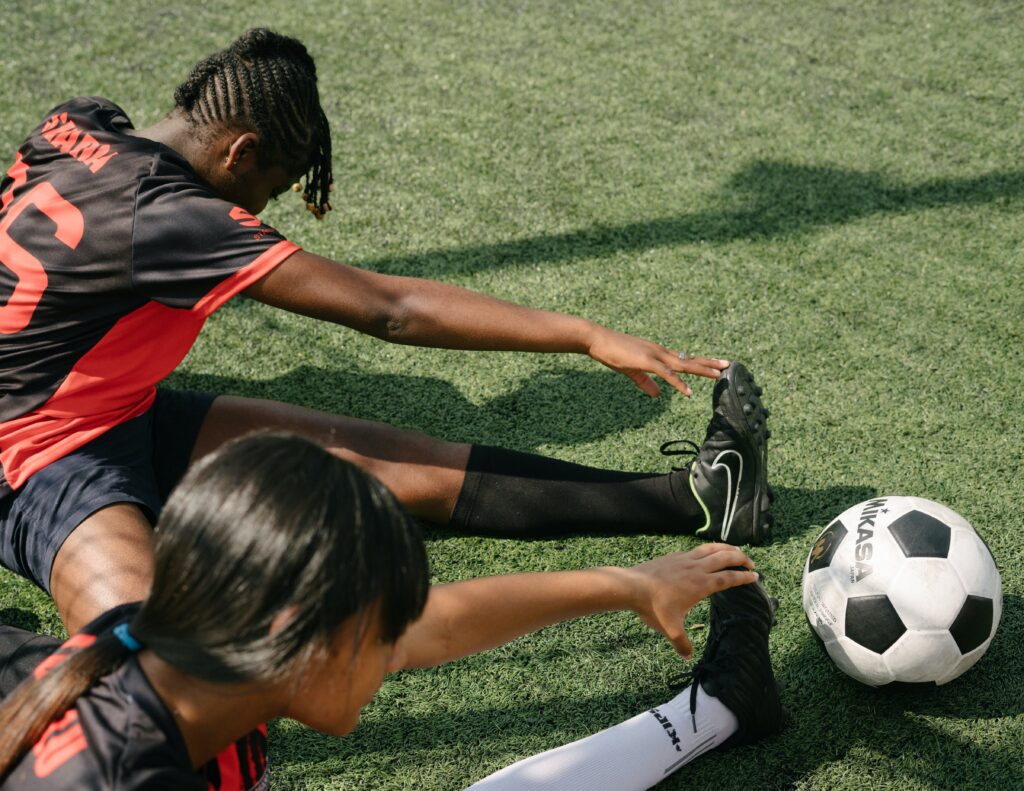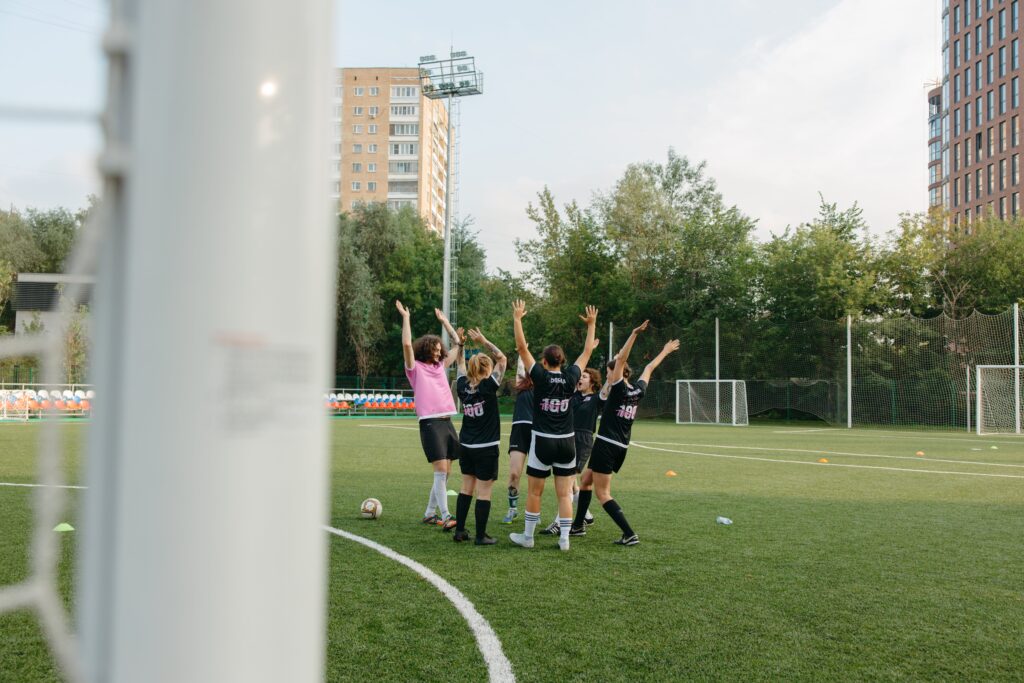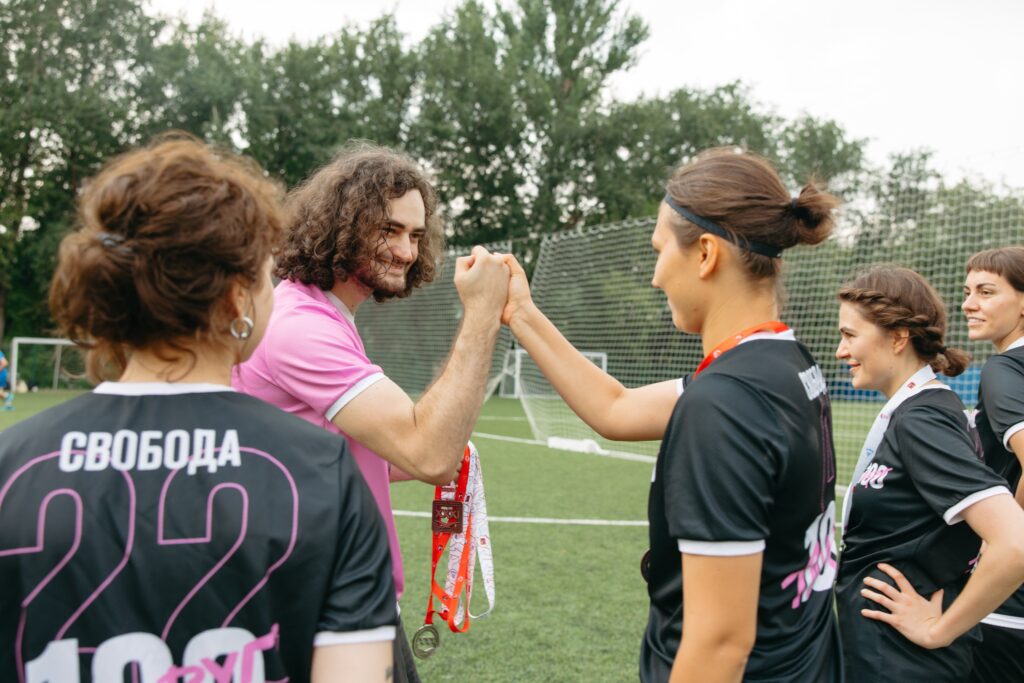
When you think of football, the sport's greats often come to mind: the older generation might think of Diego Maradona, Herbert Prohaska or Hans Krankl, the younger generation of Lionel Messi, David Alaba or Cristiano Ronaldo. Rarely do names like Megan Rapinoe, Alex Morgan or Alexandra Popp come to mind. The fact that football still has such a masculine connotation has to do with its history, but also with the lack of visibility of women in football. Female role models in football would be very important to create identification opportunities for young female players and future female coaches.
Irene Fuhrmann was team manager of Austria for almost four and a half years. The coach herself can look back on many years of experience as a player before starting her coaching career. She was the first woman in Austria to obtain the UEFA Pro Licence, which entitles her to work in top-level sport. If you look beyond the borders of our country, the national coach is not always a woman. In 20 of the 32 teams that took part in the 2023 World Cup, the teams were coached by men. The current European champions (England) and world champions (Spain) are coached by women. Does it make a difference whether women or men coach?

Men's football is fast, technical and attractive. Women's football, on the other hand... Well, the exact opposite. At least, that's the story. However, a study from Zurich has shown that there is no qualitative difference between the way men and women play football. The only major difference is in the presentation of the players: Individual stoppages after fouls or substitutions last significantly longer in men's football than in women's. As a result, active playing time in women's football is higher than in men's football. This is also reflected in the attitude of coaches. Those who have been involved in football in one way or another and have internalised certain attitudes or playing mentalities will also pass these on in training.
Diversity in football is a valuable element that enriches the sport. It is important to value the different perspectives, backgrounds and abilities of players. Women from different ethnic groups, nationalities and social classes should be more visible not only as players, but also as coaches and leaders in football. Promoting diversity not only creates a more inclusive football community, but also demonstrates that the sport is accessible and representative for all.

The empowerment of girls in football is crucial to the future of the game. Programmes and initiatives that encourage girls to participate in football are essential. Girls should have equal opportunities to develop in clubs and teams and be supported by strong female role models, be they coaches or players. Developing girls in football goes beyond the pitch, helping to build self-confidence, team spirit and leadership skills.

The best way to become a youth football coach in Austria is to attend a coaching course organized by your national association. These courses are usually offered several times a year - if there are enough registrations, some regional associations also offer courses for women only. In Burgenland there is additional financial support for all participants. During the course you will learn more about how to behave as a coach, the basics of football, pedagogical values and much more. All this prepares you to work in a club - after the theory comes the practice: you have to complete a certain number of practical hours at a football club. After that, you can start as a coach and train the youngest players up to U13. Further coaching courses are offered for higher age groups.
As mentioned above, female role models are essential to overturning male domination in football. The sport itself, in all its beauty and potential, should be the focus, not the typically 'masculine' or 'feminine' differences. To change this, we need female role models. We need female coaches who dare to enter men's football and have the confidence to train children and teach them the important values of football and, above all, the love of the sport. This includes the fact that it is perfectly normal for men and women to play football, that everyone has to stick together and that you can only win a game together. These are important values in football, but also in our society, and coaches need to pass them on, especially at youth level, so that children learn from an early age what football is all about - and not just football. More thoughts from the author are also available in an Interview on the topic: Women in football.